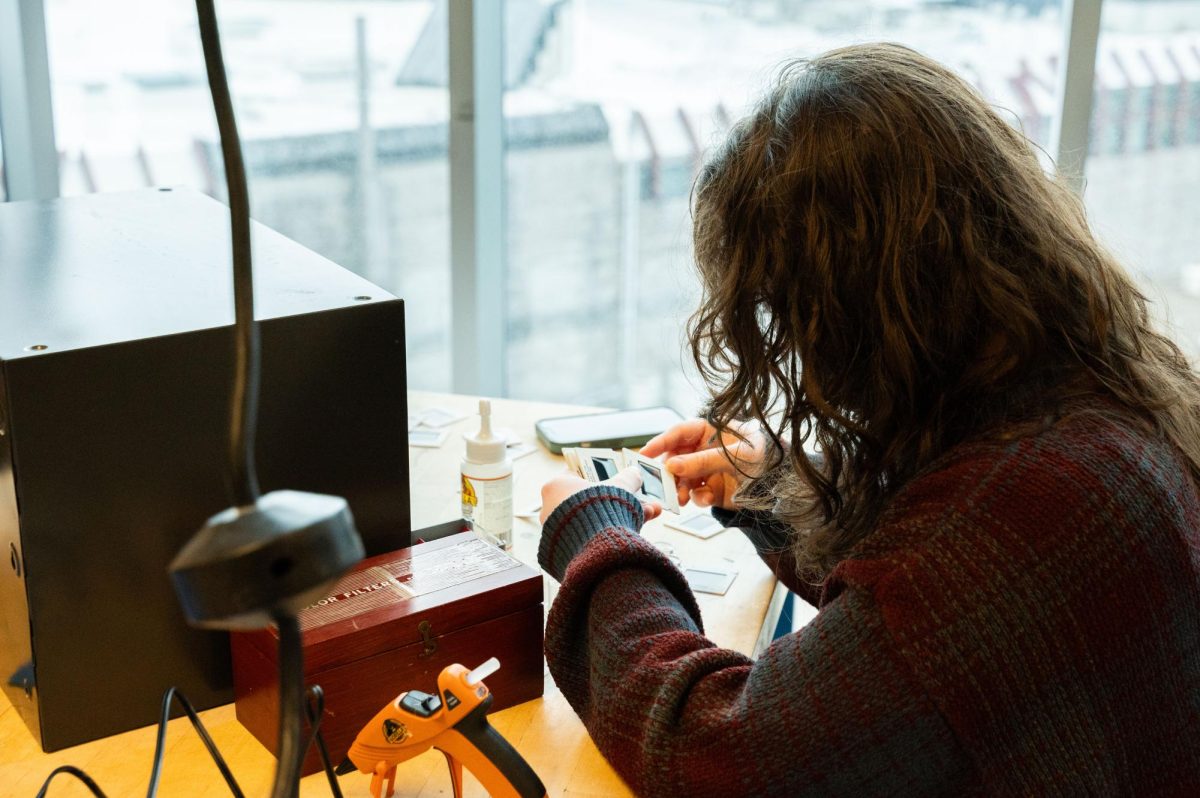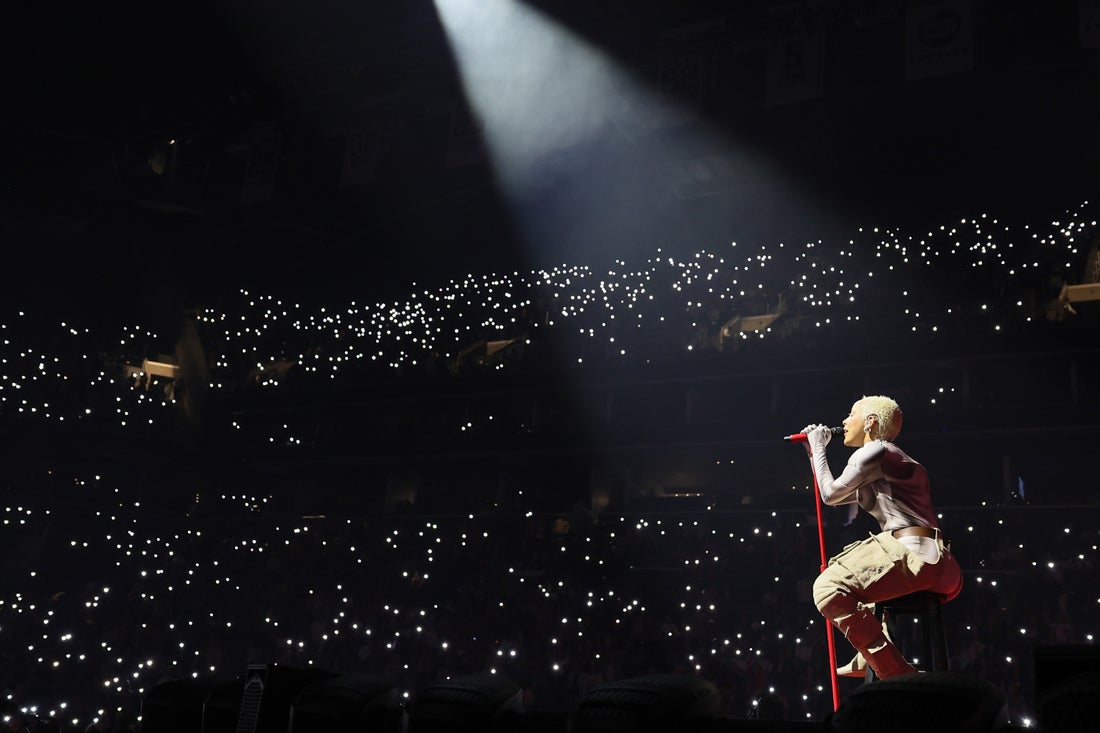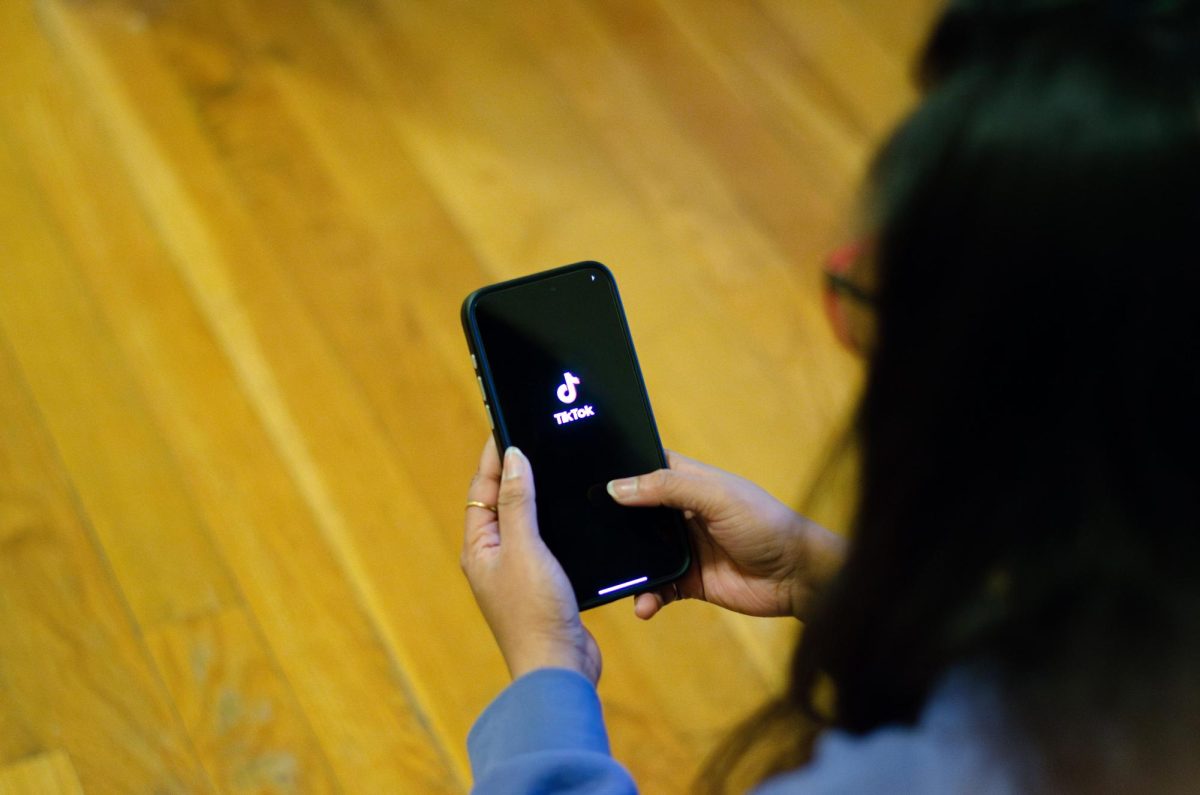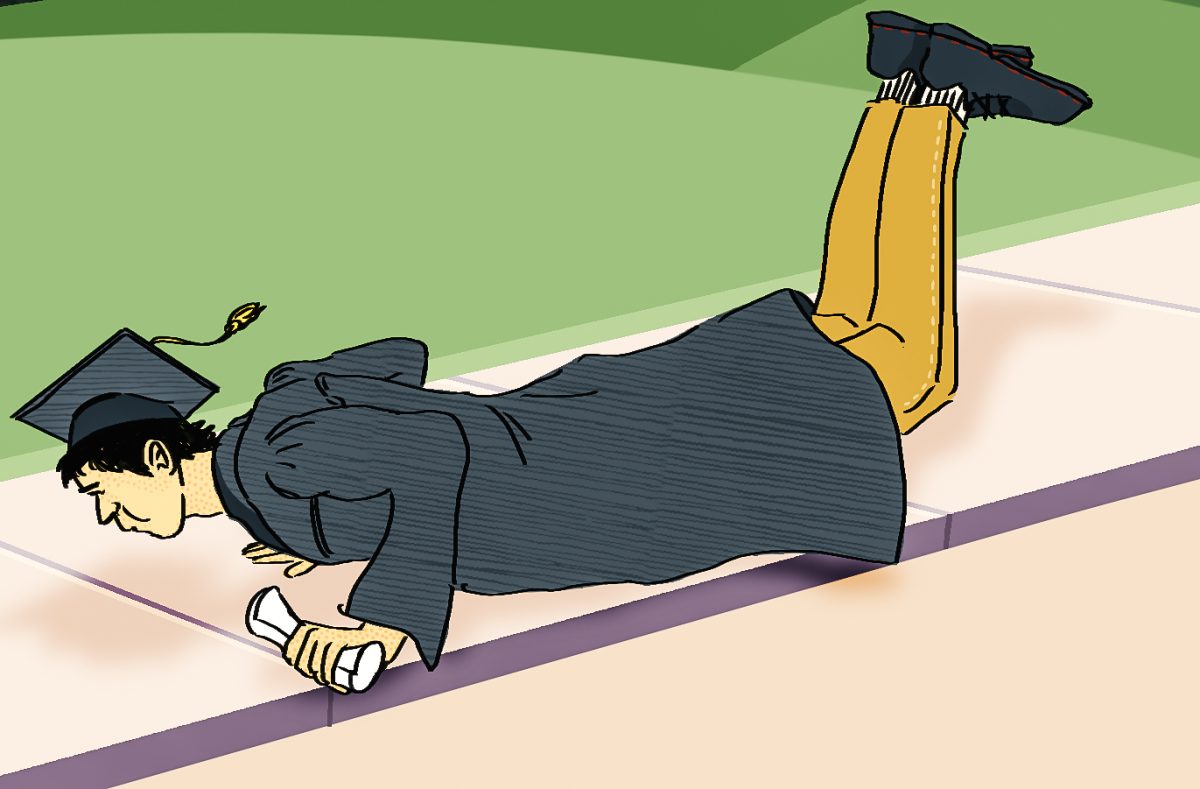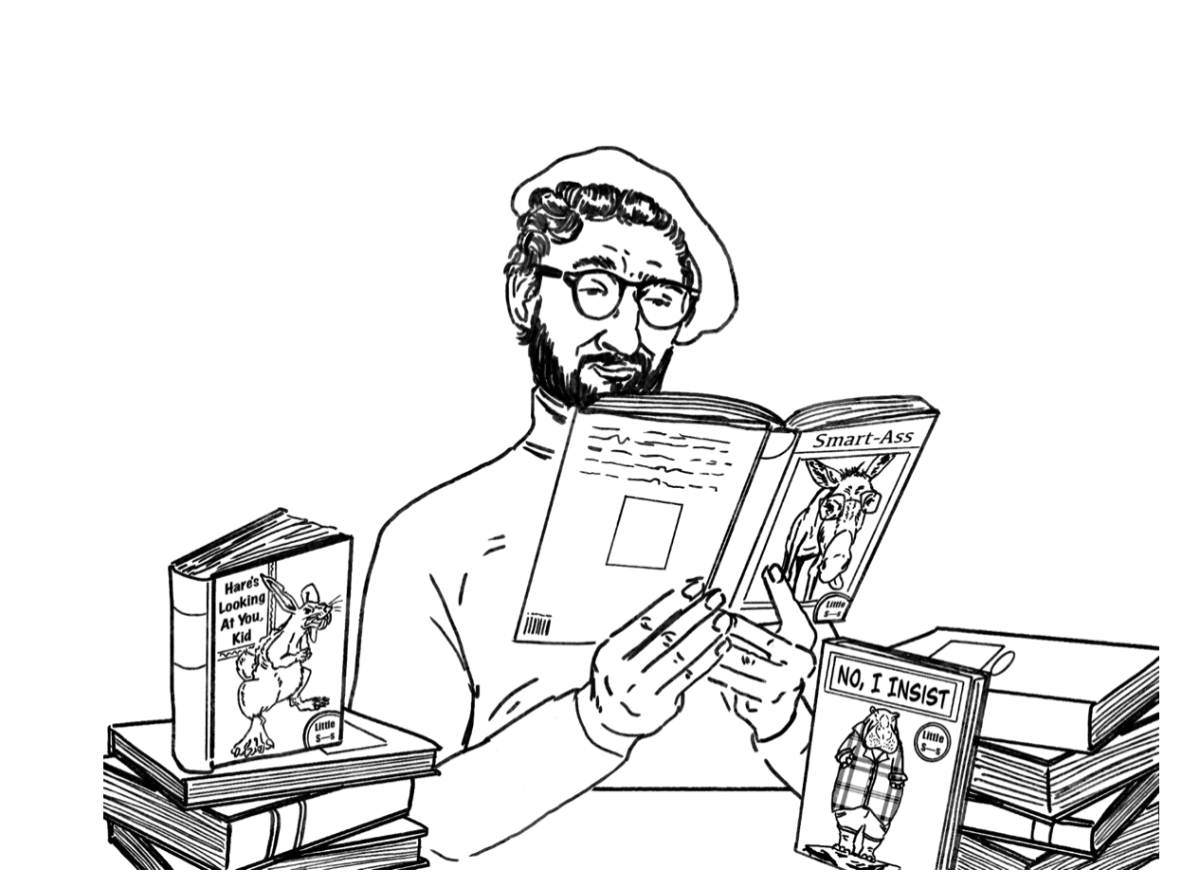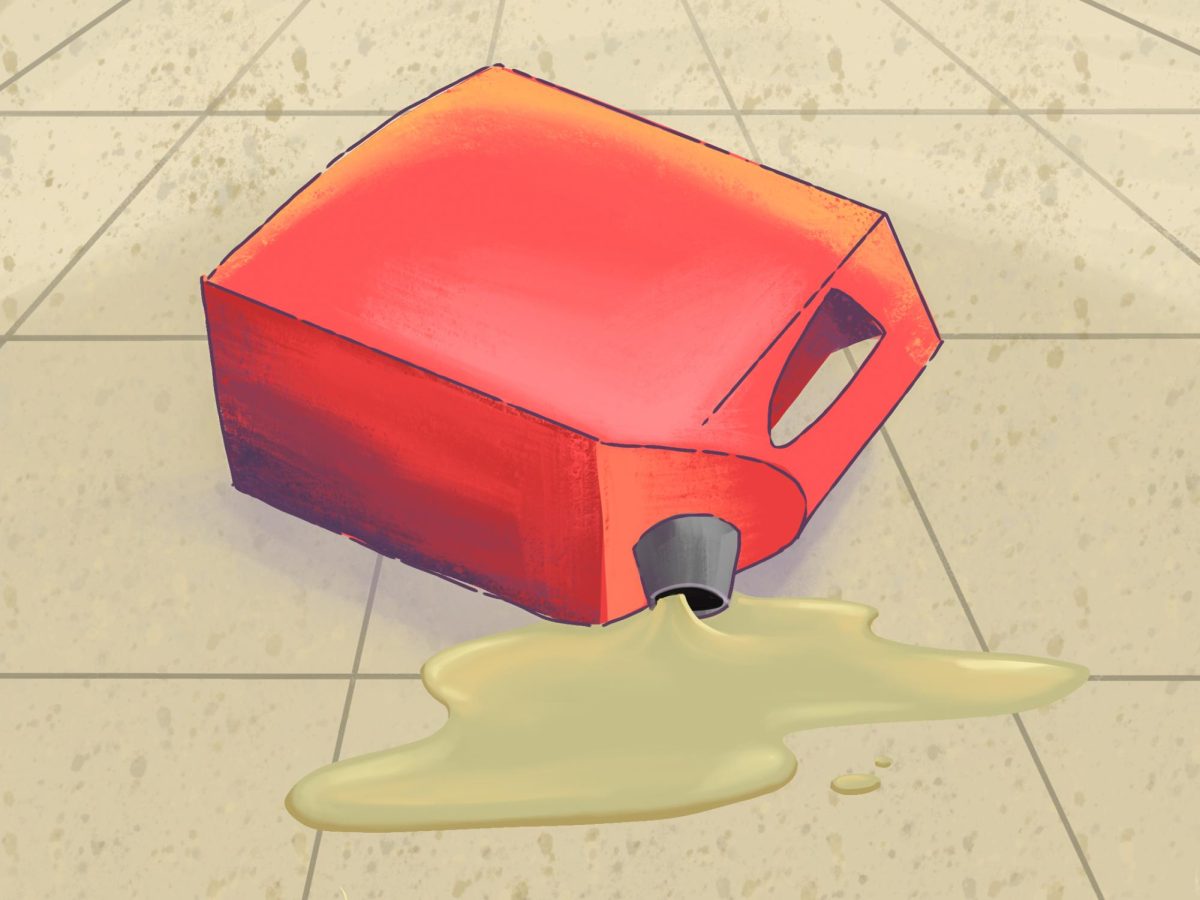Wheatley doesn’t smell like a bed of roses—this is no secret. However, after frequent complaints made by UMass Boston students and faculty of a constant, overpowering smell of rotten eggs and cow toots, a quick probe conducted by the University proved that there is, in fact, something terribly wrong with the building’s air composition: It’s gassy.
On Friday, Nov. 3, the administration sent out a notice warning of a gas leak in Wheatley Hall. It was discovered by maintenance worker, Bartholomew T. Lincolnbottom, who found leaks, not just in one location, but in multiple spots all over the building after playing a game of hot-or-cold with a cigarette lighter to help guide him to the damaged gas lines. While Lincolnbottom is expected to recover from the multiple third-degree burns to his hands and face, those who frequently attend classes or work inside the hall could experience harmful health effects due to exposure to the gas.
Luckily, symptoms of gas exposure are relatively easy to spot if you know what to look for. Possible warning signs include: ringing in your ears, nosebleeds, lightheadedness, reduced appetite, dizziness, chest pain, drowsiness and the sudden opinion that “Scooby-Doo 2: Monsters Unleashed” is somehow better than its predecessor. To put it simply, what you’ll be experiencing is akin to general flu-like symptoms.
It goes without saying that your physical and mental well-being could be seriously jeopardized, with prolonged exposure even leading to the loss of consciousness; however, the most concerning and commonly reported side-effect of these gaseous fumes is something of pure imagination. People have been reporting mass hallucinations.
One student reported that their friend threatened—in a slightly offensive Irish accent—to cut her open with a rusty spoon if she didn’t give back her pot of gold after envisioning herself as the Lucky Charms leprechaun. Another student claimed that in the middle of a lecture, their professor stripped naked, got on the floor and began flailing around like a fish out of water. For Mellissa Oop, her hallucinations appear to be more enticing than reality, a fact that has led her to spend long periods in Wheatley, huffing gas directly out of the pipes.
“I dreamed that for once, people could see me for who I truly am,” said Oop. “I dreamed that for once, I could be who I truly wanted to be. That the veil around me evaporated into mist allowing the radiant beams of my personality to shine through. For once in my life, for a singular moment, I was allowed to simply be. To exist as myself and be valued for it. That is, until the effects wore off, and like the sun shrinking down below the western horizon, the dream was over.”
With such unrealistic and fantastical visions being reported, it comes as a shock to many that the University has no plans to fix the leaks. In a statement released over the weekend, they labeled the issue a “low-priority problem” and insisted that things will continue “business as usual.” The administration’s reasoning behind this controversial move has to do with the safety measures installed during the height of the COVID-19 pandemic to improve air circulation. It is their belief that “if Wheatley can single-handedly defeat COVID-19, it can single-handedly defeat gas.”
Even still, to quell the fears of those ever-pesky doctors, the administration is providing each classroom with a gas detector to allow people to keep an eye on the toxicity levels while they learn. What do you do when the levels grow too high? Well, according to Chancellor Marcelo Suárez-Orozco, “If the level on the meter gets a little… funky, I highly encourage you to hold your breath.”
Many have been pressing the school for more information regarding how long these gas leaks went unnoticed, but the administration has remained silent. Despite this, many believe these leaks could have arisen as far back as a month ago, citing the strange testimonies from the Wheatley Horror interviews as prime evidence. It seems likely that given the revelation of these leaks, those who participated in the Halloween-themed horror series were simply projecting their biggest fears onto reality as a result of prolonged gas exposure.
This theory is further proven by the recent discovery that Wheatley Horror participants, James Kevin, Lucy Lostello and Pablo Underdog have been spending the past few weeks at Brigham and Women’s Hospital, and that their families have been written large checks by the University to keep the truth from going public. Why the school is attempting to cover this up and why they didn’t just use the hush money to repair the gas lines is a mystery, but it wouldn’t be the first time they pulled a stunt like this—we all remember the “snow penis” incident from last semester.
Until the leaks are fixed—which will probably never happen—University Health Services has published a comprehensive list of the “Dont’s and Do’s of Gas.” Some of the things you shouldn’t do according to the list include:
“Don’t: Smoke,” “Don’t: Have Bonfires,” “Don’t: Sniff Pipes” and “Don’t: Explosions.”
As for the things you should do according to health services, the list only provides one piece of advice:
“Do: Not Breathe The Gas.”



























